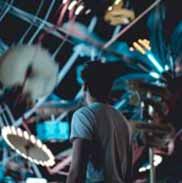Ch 1 Psychological Research w/ (with worksheet practice)
Unlock all answers in this set
Unlock answersquestion
Psychological research ______ but never proves. There's always a chance for error
answer
suggests
question
The *research process* is a _________ cycle. 1 activity leads to another
answer
recursive
question
Steps in the *Research Process* 1. Finding a Problem 2. ________ the Literature 3. ________ Considerations 4. The Hypothesis 5. The Research Plan 6. ______ the project 7. ______ of Research findings 8. Decisions in terms of _________ research and _______ 9. Preparation of the _______ Report 10. ______ your results 11. Find a _________ _________
answer
2. Reviewing 3. Theoretical 6. Conducting 7. Analysis 8. Past, theory 9. Research 10. Sharing 11. New, Problem
question
1. Finding a problem
answer
each research project begins with a problem or question for which we are seeking an answer
question
2. Reviewing the Literature
answer
finding out what rs studies already exist in an area
question
3. Theoretical Considerations
answer
A *theory* is a formal statement of the relation among the relevant variables in a particular rs area - all good theories: a.) attempt to organize a given body of scientific data b.) point the way to new rs
question
4. The Hypothesis
answer
the *hypothesis* attempts to state specific IV & DV relations w/ in a selected portion of a larger more comprehensive rs area/theory - the *research/experimental hypothesis* is the predicted outcome of a rs project -the *research hypothesis* states a testable prediction about the relations between IV, DV in your experiment.
question
5. The Research Plan
answer
is the general plan for conducting your rs -your *rs design* specifies: a. how you'll select your participants and how you'll assisgn them to groups b. the types of EV controls you'll use c. how you will gather your data
question
6. Conducting the Project
answer
conducting the experiment according to the rs plan
question
7. Analysis of Research Findings
answer
type of analysis depends on rs method used and type of data -statistical analysis is most often used on numerical data
question
8. Decisions in Terms of Past Research and Theory
answer
was our hypothesis supported? do our results agree with past research?
question
9. Preparation of the Research Report
answer
is how you share your results with the scientific community - RS report is prepared according to the APA format
question
10. Sharing Your Results
answer
presentation and publication -oral paper/poster -public article in a professional journal
question
11. Finding a New Problem
answer
start over with a new problem or question
question
Basic Research (3)
answer
1. Describing 2. Predicts 3. Explains
question
*A*ppl*i*ed Research (1)
answer
Influences -cause/effect
question
Pseudoscience

answer
any theory/method/belief/ that appears to be based in scientific theory but *isn't* -false science
question
Pseudoscience relies on: 1.Intuition 2. Tenacity 3. Authority
answer
1. Intuition: understanding through the use of common sense, based on observation (ex Greenland is green) 2. Tenacity: the persistence to maintain overtime, persistent ability of a belief -hearing something so often you reason it to be true -ex you'll catch a cold if you go outside with wet hair 3. Authority: the appearance of expertise in a field of study -the infamous \"they\"
question
Science
answer
the accumulation of knowledge via systematic observation/experimentation using the scientific method -science is empirical, self correcting, and control
question
Is it Basic or Applied Research? -More than two thirds of respondents mentioned concerns with divorce. Working-class women, in particular, view marriage less favorably than do their male and middle-class counterparts, in part because they see marriage as hard to exit and are reluctant to assume restrictive gender roles. Middle-class cohabitors are more likely to have concrete wedding plans and believe that marriage signifies a greater commitment than does cohabitation
answer
Basic Research it explains and predicts
question
Is it Basic or Applied Research? -The aim of this study was to assess the effects of an aerobic training program as complementary therapy in patients suffering from moderate depression. 82 female patients weredivided into a group that received traditional pharmacotherapy (Fluoxetine 20 mg) and a group that received pharmacotherapy plus an aerobic training program. This program was carried out for eight consecutive weeks, three days per week, and included gymnastics, dancing, and walking. Depressive symptoms were measured with the Beck Depression Inventory and the ICD-10 Guide for Depression Diagnosis, both administered before and after treatments. The results confirm the *effectiveness* of the aerobic training program as a complementary therapy to diminish depressive symptoms in patients suffering from moderate depression
answer
Applied Rs because multiple variables are taking place
question
Is it Basic or Applied Research? -Alcohol and drug use education and prevention continue to be core educational issues. In seeking to inform students at all levels about drug use, the present exploratory study highlights the potential educational use of interactive computer programs for this purpose. Seventy-three college students from two substance abuse classes interacted for at least 20 minutes with a CD-ROM program that was developed to explicitly teach and demonstrate concepts of addiction and recovery. Results indicated that most participants reported increased interest in course material and felt they had learned more about various drugs and their consequences after using the interactive program. Specifically, 81% of the participants indicated that the program increased their knowledge of drug use and addiction. Components of the interactive exercises were also evaluated separately. One *implication* of the study is that multimedia programs can be effective tools that complement current substance abuse education methods.
answer
Applied rs because multiple variables are taking place
question
Is it Basic or Applied Research? -Gump in 2004 identified a positive significant relationship between awareness of daily class objectives and ratings of the instructor's overall teaching effectiveness. The idea that rating of teaching effectiveness can be related to other non-teaching related attributes of the lecturer was further examined. Correlations based on ratings of teaching effectiveness from 453 undergraduate students (M=21 yr., SD= 5.5; 73% women) showed that another nonteaching related variable, namely, how funny the instructor was perceived, was significantly related to indicators of teaching effectiveness.
answer
Basic Research



